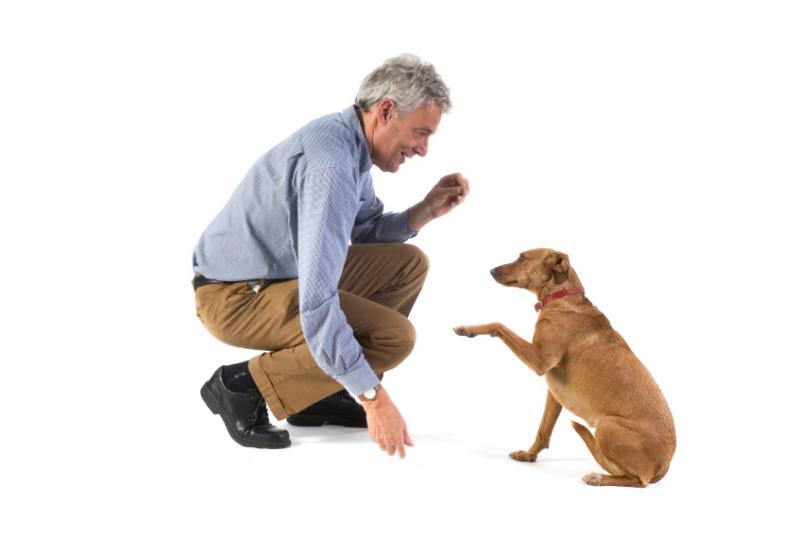Few dog owners want to raise a sick, naughty pet, but many owners adopt without doing any initial research. This can lead to poor training or the expensive and stressful discovery that a puppy has an existing medical condition; all which can lead to problems later in life.
Fortunately, just a bit of preparedness and some small lifestyle changes on your part will help instil healthy, lifelong habits, so your dog will grow to be well-behaved, content and physically fit.
Know your vet
Once you have adopted your dog, the first thing you should do is see your vet. Have a general health check-up to make sure all is well and, if your dog is a puppy, discuss when to have vaccinations. The better you care for your puppy at this early stage of life, the better chance they have of avoiding future illnesses.
While your vet should be your first port of call if you suspect anything is wrong with your dog, it is also a good idea to schedule a health check-up two or three times a year. After all, preventative medicine is the best cure.
A changing diet
As a puppy, your dog will need food which provides them with the nutrients they need to do all that growing they do in the first two years. Their small tummies also mean you should feed them little but often, so they don’t overeat and distend their stomachs. Pet food experts James Wellbeloved recommend feeding puppies six small meals, spread evenly throughout the day. As your puppy matures, transition from six meals, to four and then to two, and when they reach adulthood, change their food from puppy food to adult dog food. See this guide for how much to feed your puppy, and when to transition meal sizes, amounts and contents.
Train, socialise and play
Training your dog is a fine balance. You need to be firm and consistent right away, so your dog learns what is and is not desirable behaviour, but you also need to be sympathetic to the anxiety of young puppy.
Here are a few basic tips to help get this balance right:
- Praise good behaviours and ignore bad behaviours; your dog will learn to repeat the behaviour that gets them praise.
- Don’t ignore your new puppy at night. For the first few weeks, it is normal for puppies to whine. Attend them so they learn they are in a safe space.
- As soon as your dog is able to interact with other dogs, do so. Encourage frequent meetings and don’t panic when big dogs bark at your pup; this is all part of normal socialisation and your puppy learning boundaries.
- Walk your dog at least twice per day, but play with them regularly, too. Play is fun, encourages a bond, and will mentally stimulate your puppy.
Of course, there is more you can do to help ensure your dog grows up well-behaved, healthy and happy, from microchipping your dog (a legal requirement in the UK) and fulfilling certain breed-specific requirements. But maintaining a close relationship with your vet, feeding your dog an age-appropriate diet and consistently training and exercising your dog are the three key pillars.






